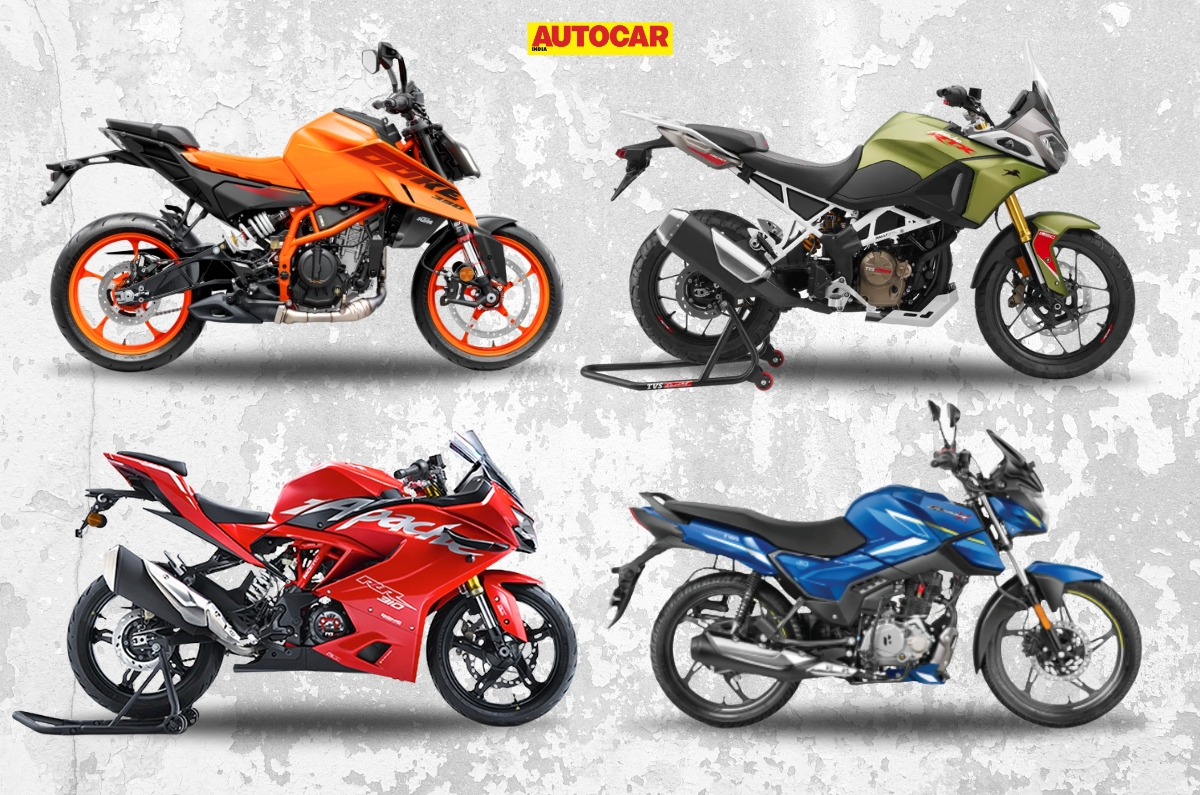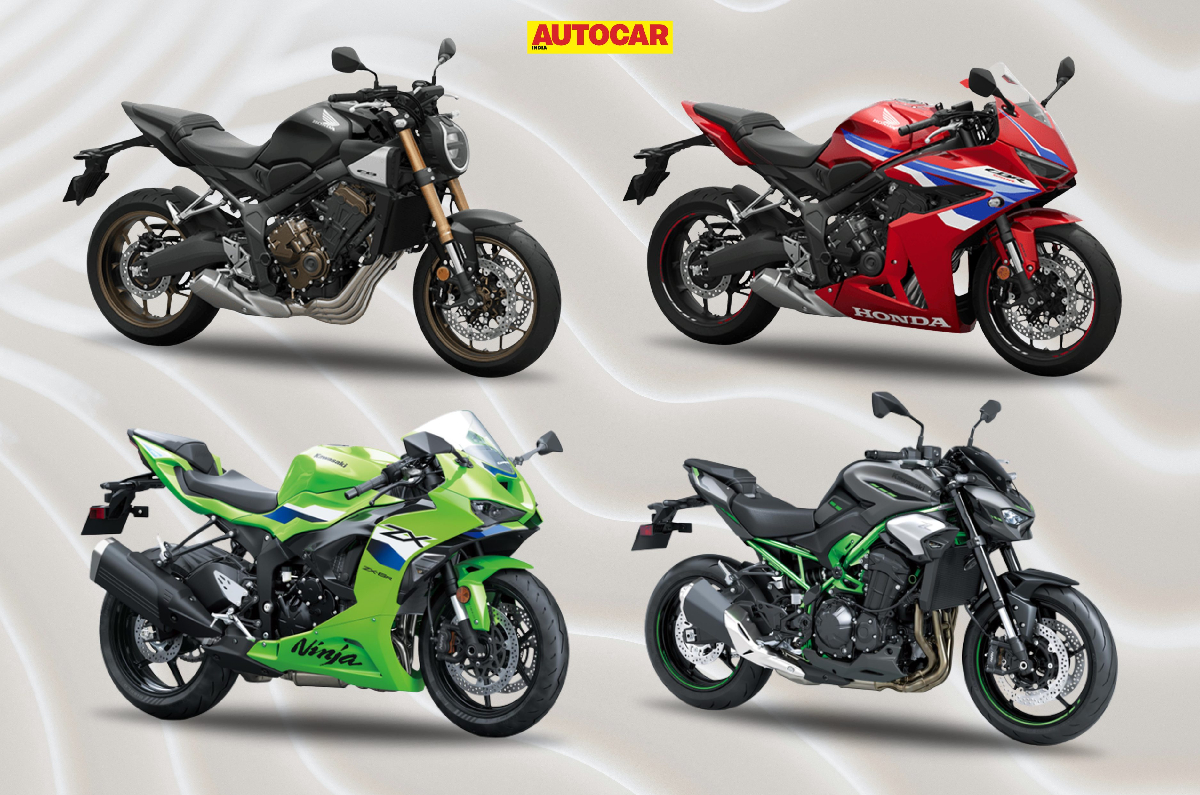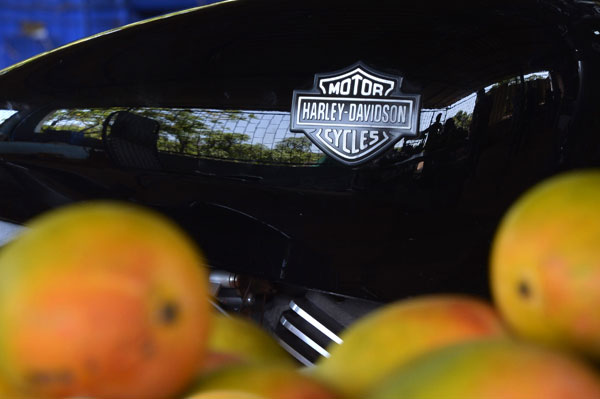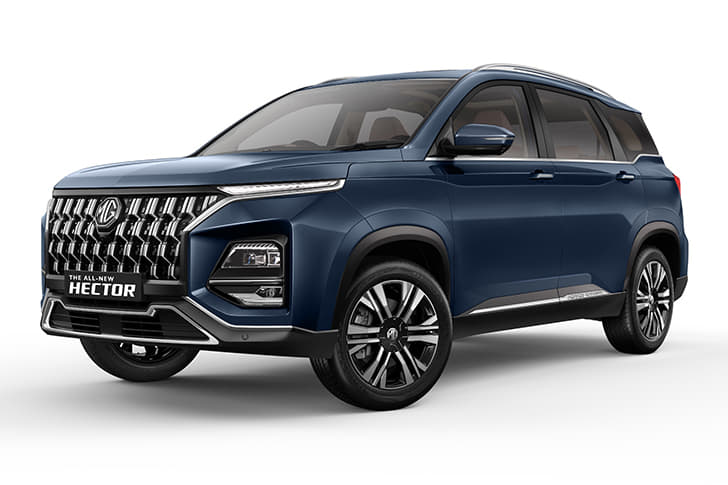It’s fair to say, without any exaggeration, that the motorcycle you are looking at here is the fastest, most advanced race bike to ever come out of India. Underneath that featherweight carbon-fibre bodywork is a TVS Apache RR 310, but very little remains of the donor machine. In fact, aside from the main trellis frame, the front and rear brake callipers, brake master cylinders and hand levers, almost everything has been swapped for high-tech and painstakingly engineered performance parts.
WHAT IS IT?
Before we go further, this is the race-spec RR 310 that TVS has specially built for the Asian Road Racing Championship. While TVS has previously competed in the AP250 category in the ARRC, they decided to try something new for 2022. This time around, TVS decided to run a brand-new, one-make championship within the ARRC and this is the machine they created for it.
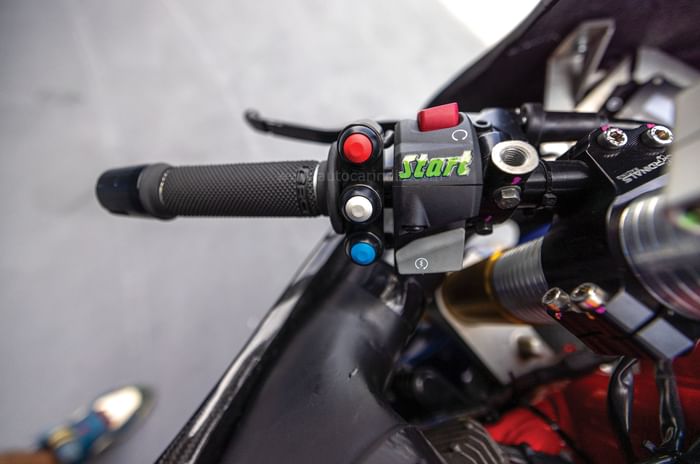
The RR 310 was the obvious starting point, considering that TVS already has a highly developed version of it racing in the pro-stock 300-400cc championship in India, but that category has some pretty restrictive regulations. Not so here and TVS has clearly not held back in this effort to showcase what its race engineering team is capable of.
THE SCIENCE OF SPEED
One of the first things you want to do to make a bike as fast as possible is to make it as light as possible. This RR 310 uses skinny carbon-fibre body panels and even an entire rear subframe is a carbon-fibre unit. Billet aluminium components like the adjustable rear-sets add to the cause and TVS even used carbon-fibre wheels before switching to forged aluminium units to solve some issues with chatter – the company plans to bring back redesigned carbon-fibre wheels next season. Throw in a compact 6.0-litre aluminium fuel tank and you’re looking at a motorcycle that weighs just 110kg – fully fuelled! That’s an astonishing saving of 64kg over the stock bike.
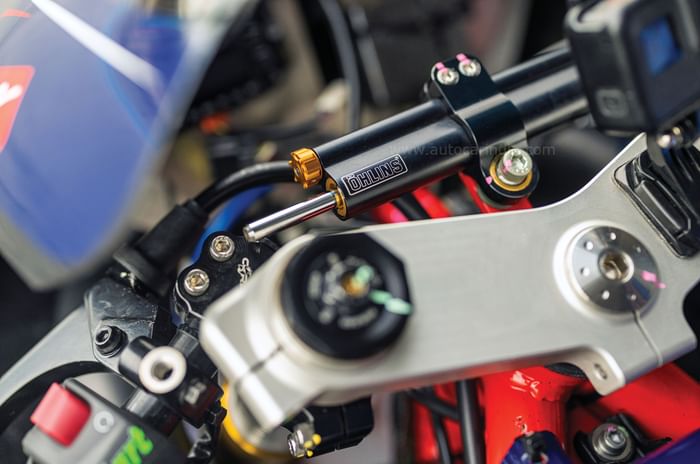
With as little weight to pull around as possible, the simultaneous focus was on making that pull as strong as possible. There are no changes to the bore and stroke, but the engine now gets a forged piston, titanium valves and a beefed-up cooling system for both the radiator and the oil cooling system. TVS found that there was more to gain in gas flow dynamics by using a twin exhaust system (it’s still a single exhaust port in the cylinder head and the pipes branch apart soon after exiting the engine) than there was to lose from the weight penalty of the second exhaust pipe. And might I add from a non-engineering, purely vanity-driven view – that twin pipe set-up also looks so damn good.
Another power-enhancing mod is the ram air system that gulps in the air from the gaping front intake and channels around both sides of the USD fork and into the airbox. The airbox itself is heat shielded to keep all that pressurised air as cool as possible. A tunable ARacer ECU manages the engine and there’s an (upshift only) quickshifter as well. The result of all this is a peak output of about 50hp (stock is 34hp) with a redline set at 11,900rpm. TVS says that this is a safe limit for reliability and that they could push it a bit higher if needed.
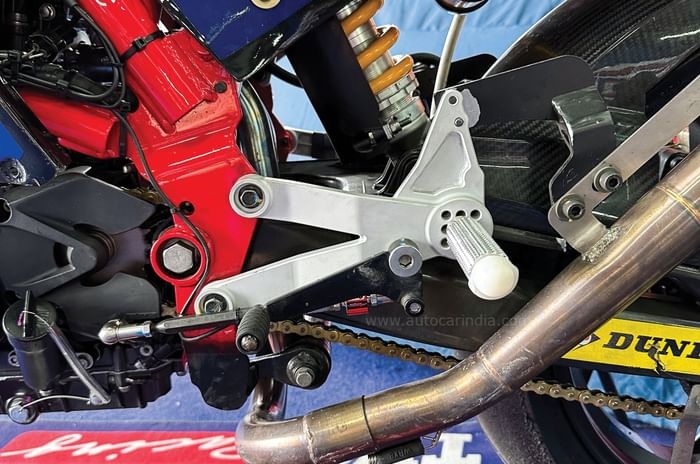
I don’t suppose that need will arise anytime soon because the ARRC-spec RR 310 just set a new speed record of 211.2kph at the final round in the Chang International Circuit in Thailand. In fact, TVS invited a few of us down to witness that last race of the season, with the really exciting part being that we could try out the bike the next day!
TVS almost never lets outsiders ride its top-tier race bikes so I was thrilled for weeks at the thought of riding it. After all, short of a Moto3 machine, I don’t think anything can come close to the experience. The plan was simple, we’d each get a 10-minute familiarisation session followed by a 20-minute riding session. More time would have been lovely, considering the unknown circuit and how alien this bike is compared with what we normally ride, but we were part of a tyre test day for the 2023 season and this was all that was possible.
GO TIME
The first session was all about figuring out the lines and coming to grips with the bike. I was also fervently reminding myself that it uses a race-style, reverse gear shift pattern and under no circumstances could I become ‘that idiot journalist who blew the engine up’. And yet, in the midst of this overwhelming storm of sensory information, one thing quickly became clear – this is a beautiful bike to ride.
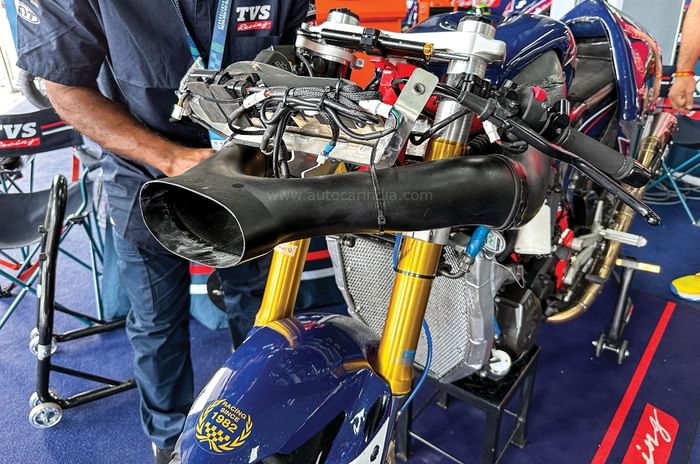
It was quite a surprise how different this bike feels compared to the India-spec one-make RR. Where that was a vibey, rough, snarling machine with a hair-trigger quick-throttle, this RR 310 was far smoother than I’d have ever expected. Predictably, the engine is quite peaky and you really don’t want to drop below 7,000rpm, but at no point at all do you feel any annoying or intrusive vibrations. The fueling is sharp but beautifully dialled in, and the surge in power that begins at 8,000rpm will put a smile on the most seasoned motorcyclist’s face. The revs build so rapidly that you’ve got to be quick to use the sweet quickshifter at just the right time or you’ll smack right into that 11,900rpm rev limiter.
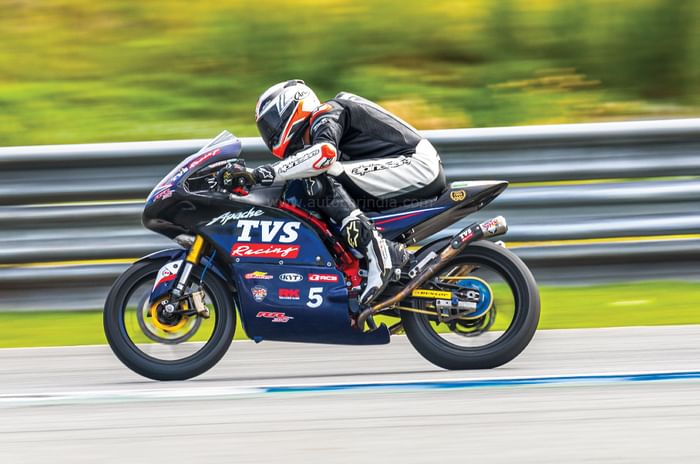
After the familiarisation session, I spent some time with the TVS crew to get the bike set up closer to my preference – something all the racers can do. We started off with a soft suspension set-up to keep the bike friendly, but this time around, a turn of preload was added at both ends on the bespoke Öhlins suspension. I also requested for the footpegs to be dropped to their lowest position and clip-ons widened up – this is a tiny bike and I wanted to give my cramping muscles a fighting chance at lasting the next 20 minutes.
Now that I knew where I was going, I tried upping the pace and what resulted was some of the best track time I’ve had in years. What made this such a happy memory was that the little RR was kind enough to encourage me to do my best, instead of cruelly pointing out that the limit to my abilities arrived far before its limits were anywhere in sight.
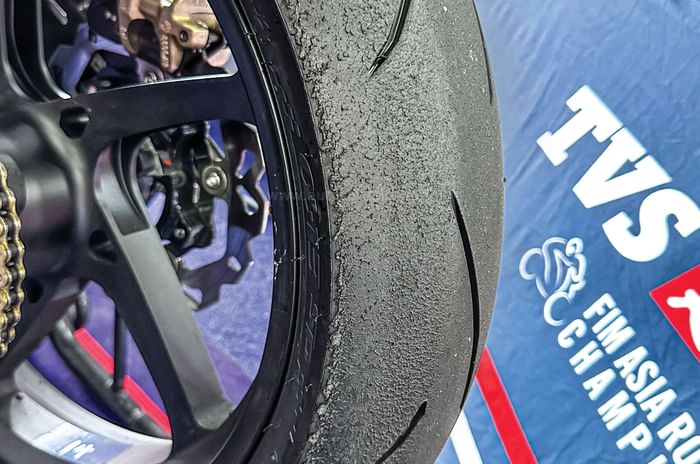
I suppose the combination of the lack of weight, beautiful balance and the sweet, eager engine is what makes this such a special experience. I have never ridden anything that turns so quickly and with such little effort. Even though it often turned far faster than I expected, sucking me into an annoyingly early apex, the bike also never scared me with twitchy or aggressive responses. With that being said, the Chang International Circuit is beautifully wide, smooth and fast flowing – I imagine this bike will be a much more visceral experience in Chennai. Nevertheless, with a larger, thicker 320mm front disc and special race-compound pads, the brakes were also mega, despite the lack of glamorous bits like aftermarket brake master cylinders or fancier calipers – just another example of how less weight is the answer to everything. The racing-spec Dunlop tyres were stickier than I knew what to do with and next year TVS is planning to switch to slicks as well, which will only drop the lap times further.
A FAST FUTURE
TVS says that this bike is currently at about 80-85 percent of its overall potential and next year they want to push higher still, with more exciting upgrades planned for the engine and rolling chassis. Even in their first year, TVS has gained genuine respect from the entire ARRC paddock, which is no surprise considering that these bikes lapped Chang about 2.5sec faster than the twin-cylinder 250s in the AP250 category. With the way they’re going, I don’t think it’s an impossible dream that we may, someday, see TVS compete at the world stage in Moto3 with a truly in-house developed machine. How cool would that be!





